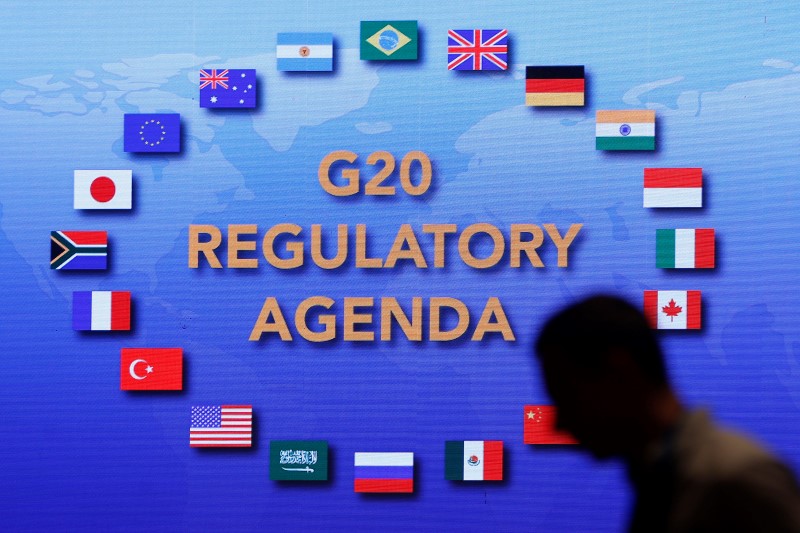G20 watchdog says no let up in correspondent banking decline

LONDON (Reuters) - The decline in correspondent banking, a crucial channel for moving cash from one country to another, shows no sign of slowing despite measures agreed in 2015 to stem the slide, global regulators said on Tuesday.
Banks have been pulling out of the business for a variety of reasons from not making enough money to industry consolidation to the fear of falling foul of tougher new rules designed to prevent money laundering and terrorist financing.
The Financial Stability Board (FSB), which coordinates financial regulations for the Group of 20 countries (G20), said the places most affected tended to be small economies or those finding it difficult to apply the new rules.
The decline has raised concerns that some payments will pass through unregulated cash couriers instead, harming international trade and driving some people out of the world's financial system, the FSB said in a report.
The FSB unveiled a four-point action plan in November 2015 to curb the decline and has since made clear that correspondent banks don't have to know their local customer's customer but the fall has shown no signs of abating.
"The decline in the number of correspondent banking relationships is continuing," the FSB report said.
It said all regions had been hit to a varying degree, with the Caribbean and small states in the Pacific suffering the worst and Eastern Europe hit hard as well. The FSB said transactions in U.S. dollars and euros were the most affected.
In correspondent banking, a global bank typically channels payments in country to a local bank with no international network in another country.
Very interesting post - you got my upvote !
If you are interested in science and investing in science projects, check out my blog.
Best,
Alex